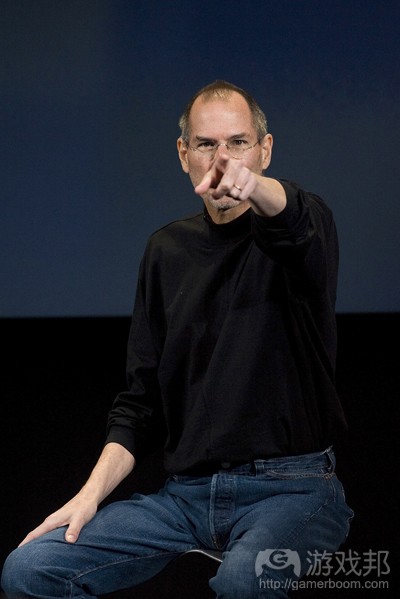游戏项目开发需要哪种“梦想家”?
作者:Clinton Keith
我们经常提到的游戏“梦想家”,是指创造和引导贯穿整个开发过程中的想象性工作的人。谁是梦想家?他们要如何实现自己的想象?我曾担任项目经理,虽然我不是产品的梦想家,但我曾和许多了不起的梦想大师和比较差劲的空想家共事。以下是我对这类人的一些印象和看法:
在创意项目中,梦想家是一个非常重要和必需的角色。那些能够不断诞生精品的公司,其成功很大程度上要归功于其梦想大师——苹果有乔布斯、皮克斯有Lasseter、 任天堂有宫本茂……但如果没有优秀的团队协同,“梦想大师”的眼光也只能抵达“空想”的阶段。一个想象的产生到完成,需要梦想家准确的传达、后期的加强、阶段性的检查和根据游戏实际进行调整。这些都是梦想家在团队中的基本职责。
要成为一名合格的梦想家,要求是苛刻的。他们必须:
1、大胆质疑、根据游戏的现实情况测试自己的想象。
2、不允许半成品(部分完成或未经检验)的情况拖延太久。
3、能够立刻构思出一个非常规的创意。
4、能够确保相关工作人员知道进展和得到实时反馈。
5、有一件黑色高领毛衣。
我们经常这样描述一个成功的“梦想家”:要求苛刻、态度坚定、甚至蛮横地拒绝不符合自己梦想的项目。Lasseter在开发后期重制电影是因为剧情和角色不达标;乔布斯大发脾气是因为设计不符合自己的直觉;宫本茂取消游戏项目是因为不能“很快地找到乐趣”。这就是梦想大师的态度。难道梦想家必定是个“暴君”?我想不是。与其说是个性,不如说是不同的风格。成为优秀的“梦想家”的关键是保持想象的完整性,然后朝着最佳游戏的目标不断调整自己的想像。
优秀的梦想家应该乐意妥协,因为没有任何想象是完美无缺的。妥协是改善游戏和应对意外的必要态度,但被妥协的不应该是想象的完整性。也就是说,游戏的某些部分表现不佳,梦想家不能单纯地认为“之后会好起来”;
如果游戏机制的太烂,梦想家不能妄想“总有一天会变有趣”;如果剧情不凑效,如果动画不够精彩或如果系统太迟钝,梦想家必需要求修改。然而,如果梦想家害怕伤害团队成员的感情或撞破硬性规定的日期,那么粗制滥造的游戏就诞生了;这还不止,整个团队不得不一边瞄着即将到期的“交差日”,一边慌乱地修补游戏,一边痛心损失了一个好创意。
我们都知道:
黑色高领毛衣是不够的。
方法学不会自动生效。游戏从来不是流水线生产出来的。
梦想、定位、才能和领导都是创造好游戏的必要元素,而且不可相互分离。
问题:
1、梦想家必须是导师?有些优秀的梦想家和创意人员一起工作,能取得不错的成果。我曾听说, Lasseter挨个地教导动画师如何刻画某个角色的眼睛。但不是每个梦想家都能做到这一步的。
2、“梦想家”需要什么职称和头衔吗?大多数情况下确实是,但这是绝对必要的吗?
3、一家公司得有多少梦想家才合适?想象是一种可以传授的技能吗?皮克斯的产品有赖于梦想家的参与人数。Brad Bird被召回去统领《料理鼠王》制作前,甚至没法休几天假。乔布斯生病了,所有人都担心他一离开,苹果帝国就会崩溃。
4、工作室如何识别和处理表现不佳的梦想家?提拔一个不合适的人担任梦想家的角色是很容易的,但要撤掉他们就困难了。差劲的想象会扼杀一个游戏,甚至推毁一个工作室。蹩脚的空想家只会抱怨团队,而不是自己的想象力。(本文为游戏邦/gamerboom.com编译,如需转载请联系:游戏邦)
What makes a good “visionary”?
by Clinton Keith
There is a lot of talk about the visionary for a game, the person who creates and guide the vision through development. Who is the visionary and what do they need to do to make their vision come to life? I’ve been a project manager…not a product visionary, but I’ve worked with great visionaries and poor visionaries. These are my impressions and questions:
The role of a visionary on a creative project is an essential and demanding one. Many companies that consistently produce great products owe much of their success to their visionaries; Apple has Jobs, Pixar has Lasseter, Nintendo has Miyamoto, etc. But visionaries are nothing without talented teams to realize their vision. Vision needs to be communicated, reinforced, inspected and adapted to the emerging reality of the game. This is the visionary’s fundamental responsibility to the team.
A visionary must be demanding. They have to:
Unflinchingly question and test their vision early against the actual game.
Not allow work-in-progress (partially completed or unproven work) to drag out too long.
Call out substandard work immediately.
Ensure that the stakeholders are aware of progress and are able to safely air feedback.
Own a black turtleneck sweater
Successful visionaries have often been described as demanding, uncompromising, even brutal in their rejection of work that does not fulfill their vision. Lasseter resets movie projects late in development because the story or character aren’t right, Job’s throws tantrums when a design isn’t intuitive and Miyamoto cancels games that don’t “find the fun fast”. These are all examples of strong reactions to an emerging product that doesn’t live up to a vision. Does this mean that a visionary must be a tyrant? I hope not. There are as many different styles than there are personalities. The key, it seems, is to maintain integrity to a vision and to “course correct” towards the best game.
Good visionaries should be willing to compromise because no vision is perfect. Compromise is necessary to refine a game or to react to the unexpected, but compromise seems to go bad when the integrity of the vision is the thing being compromised: when the visionary assumes that some poor-performing part of the game “will be fixed later” or a bad mechanic “will be fun someday”; if the story-line isn’t working, if the animation doesn’t look right or if the system is sluggish, the visionary must demand correction. However, when the visionary is afraid to hurt the team’s feelings or needs to hit an arbitrary milestone date, then the wrong game is created and the team must eventually face the mad scramble to cobble something together when time runs out and a vision is sacrificed for a ship date.
Things we know:
Black turtleneck sweaters aren’t enough.
Methodology can’t automate the role. Games will never come from an assembly line.
Vision, alignment, talent and leadership are all necessary elements of any great game and can’t be separated.
Questions:
Do visionaries have to be mentors? Some of the best visionaries work with creators to demonstrate how to best work. I’ve read about Lasseter sitting down with individual animators to teach them how to animate the eyes of a particular character. Not all visionaries do this though.
Do visionaries need a big job title? It would seem they do in most cases, but it is it absolutely necessary?
How thin should they be spread? Can vision be taught? Pixar production is limited to how many visionaries they have working for them. Brad Bird couldn’t even take a few days of vacation before he was recalled to head up Ratatouille. Steve Jobs’ illness has everyone wondering whether Apple will tumble when he leaves.
How does a studio identify and handle a poor visionary? It’s easy to promote the wrong person to the visionary role, but hard to remove them. A bad vision will kill a game or even a studio. A bad visionary will blame the team and not the vision. (source:gamasutra)








































 闽公网安备35020302001549号
闽公网安备35020302001549号